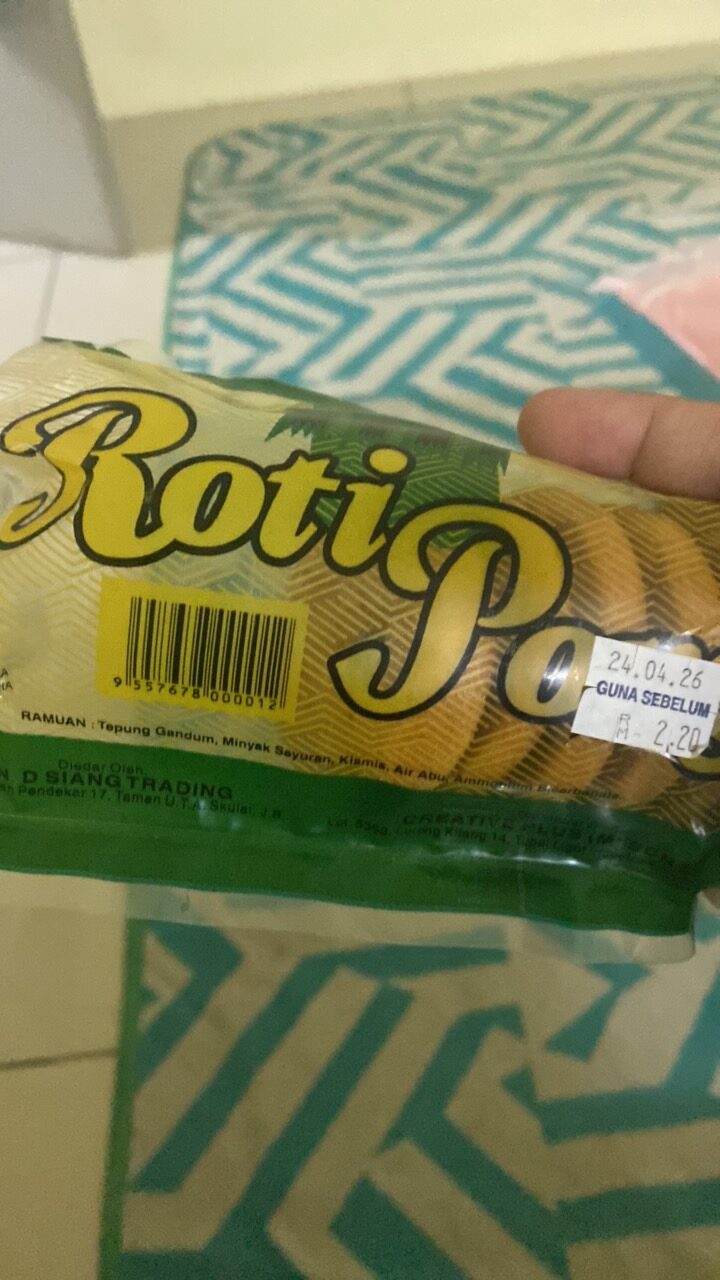
Barcode: 9557678000012
roti
HALAL
📝 Reason: All ingredients in the product are derived from Halal sources. Wheat flour, vegetable oil, and raisins are plant-based and inherently Halal. Ammonium bicarbonate (E503) is a synthetic leavening agent that does not involve any Haram substances in its production, making it permissible for consumption under Islamic dietary laws.
🏷️ Category: Bread
📄 Certificates: Vegetarisch
Ingredients:
Details
Understanding the Halal Status of Roti
Roti, a staple bread enjoyed in various cuisines, raises an important question among conscious consumers: Is this product halal? In this post, we explore the halal status of Roti by examining its ingredients and the processes that make them permissible under Islamic dietary laws.
What Makes Roti Halal?
The key to determining if Roti is halal lies in its ingredients. The Roti is made up of wheat flour (tepung gandum), vegetable oil (minyak sayuran), raisins (kismis), and ammonium bicarbonate (E503). Each of these components plays a crucial role in both the texture and flavor of the bread, but more importantly, we need to ensure that they come from halal sources.
Ingredients Breakdown
- Wheat Flour (Tepung Gandum): Wheat flour is a common ingredient in various types of bread, including Roti. It is generally recognized as halal because it is derived from plants, aligning with general Islamic dietary guidelines.
- Vegetable Oil (Minyak Sayuran): This ingredient is also plant-based and is universally accepted as halal. Vegetable oils are commonly used in baking and cooking, imparting moisture and richness to the bread.
- Raisins (Kismis): Dried grapes, known as raisins, are confectionery fruits that add sweetness and texture to Roti. Like the previous ingredients, raisins are naturally halal.
- Ammonium Bicarbonate (E503): This ingredient functions as a leavening agent in the bread-making process. According to sources like www.foodchemadditives.com, ammonium bicarbonate does not originate from any haram substances and is, therefore, halal.
The Verdict: Is Roti Halal?
After an in-depth examination of the ingredients, we can confidently affirm that Roti is halal. All ingredients are plant-based, synthetic, or derived from halal sources, making this bread permissible for consumption according to Islamic dietary laws.
The Importance of Halal Certification
While our examination provides clear evidence of Roti’s halal status, it is also worth noting that brands often seek halal certification to establish trust with their consumers. Although this Roti does not come from a specific brand, it is crucial for products in the market to have certification from recognized bodies. This assures members of the Muslim community that the product adheres strictly to halal standards.
Conclusion
In summary, Roti is a delightful and safe option for those observing halal dietary laws. Its ingredients are derived from halal sources, and the techniques used in its production do not compromise its halal status. The emphasis on halal food continues to grow, and understanding the origins and processes behind our food can empower consumers to make informed choices. So, next time you enjoy a piece of Roti, you can do so with the peace of mind that it meets halal standards.
